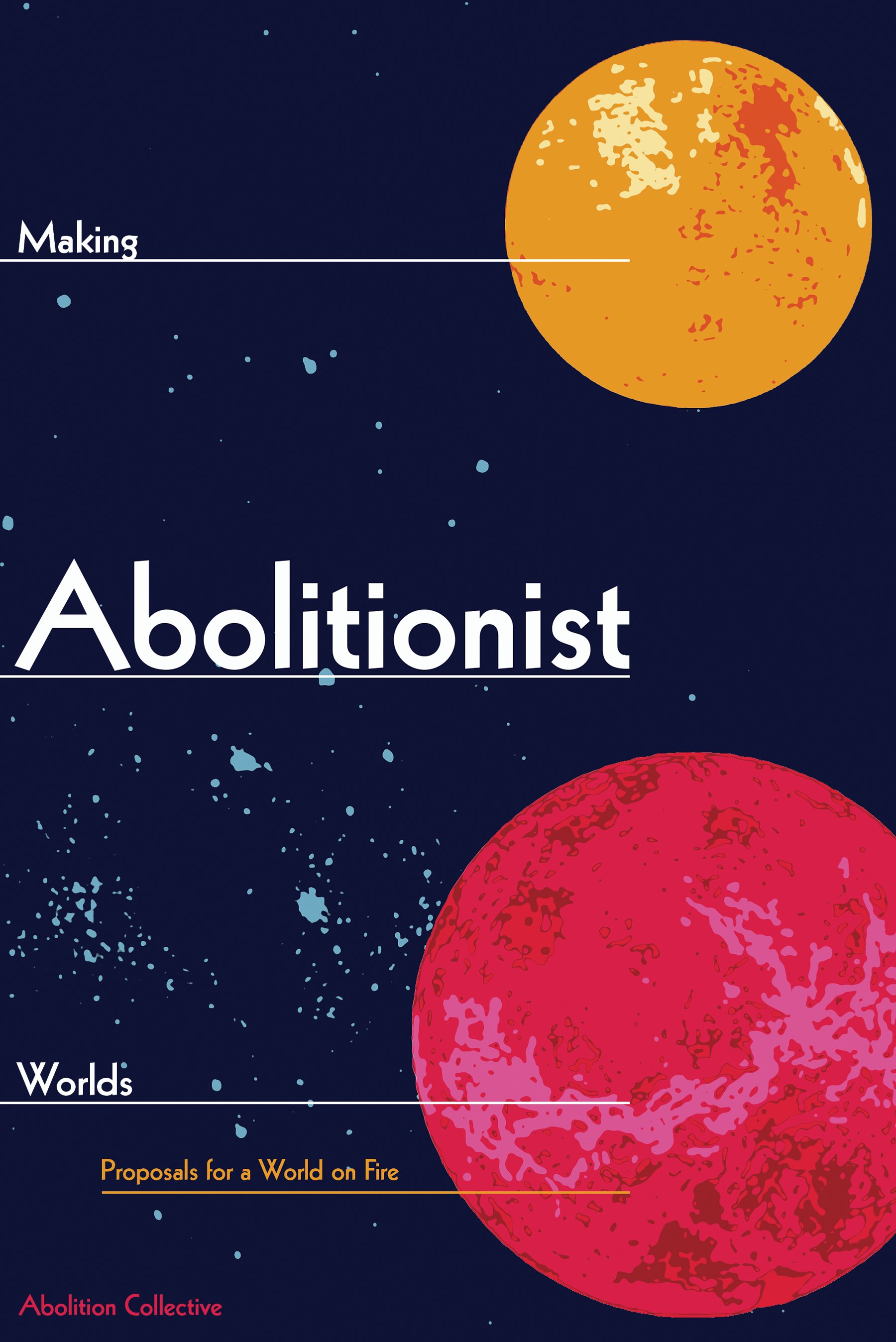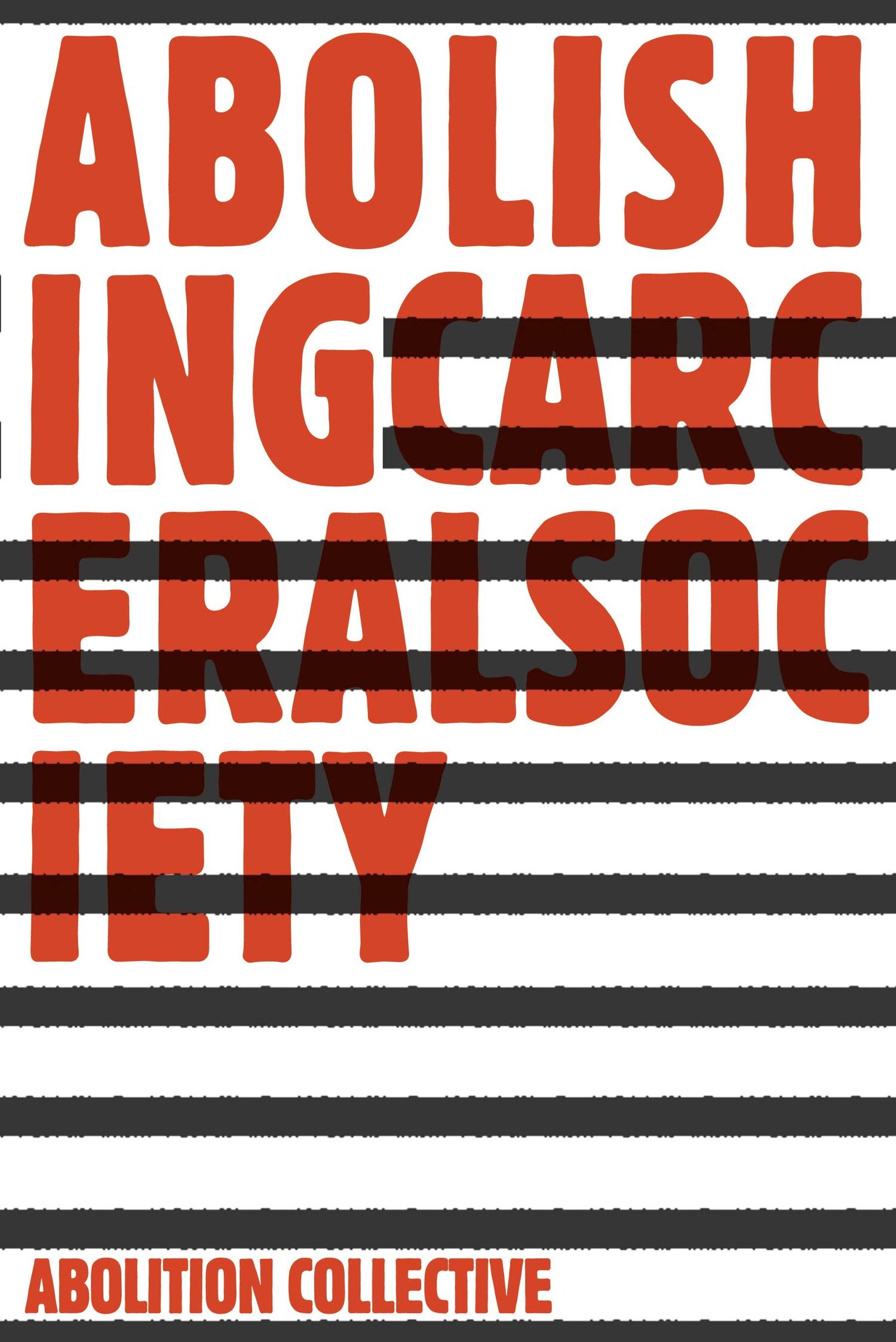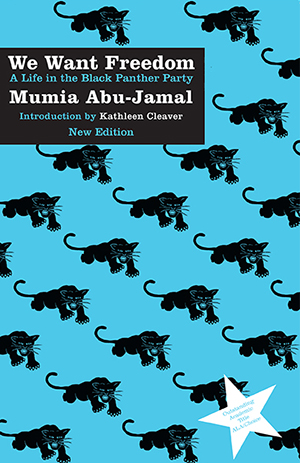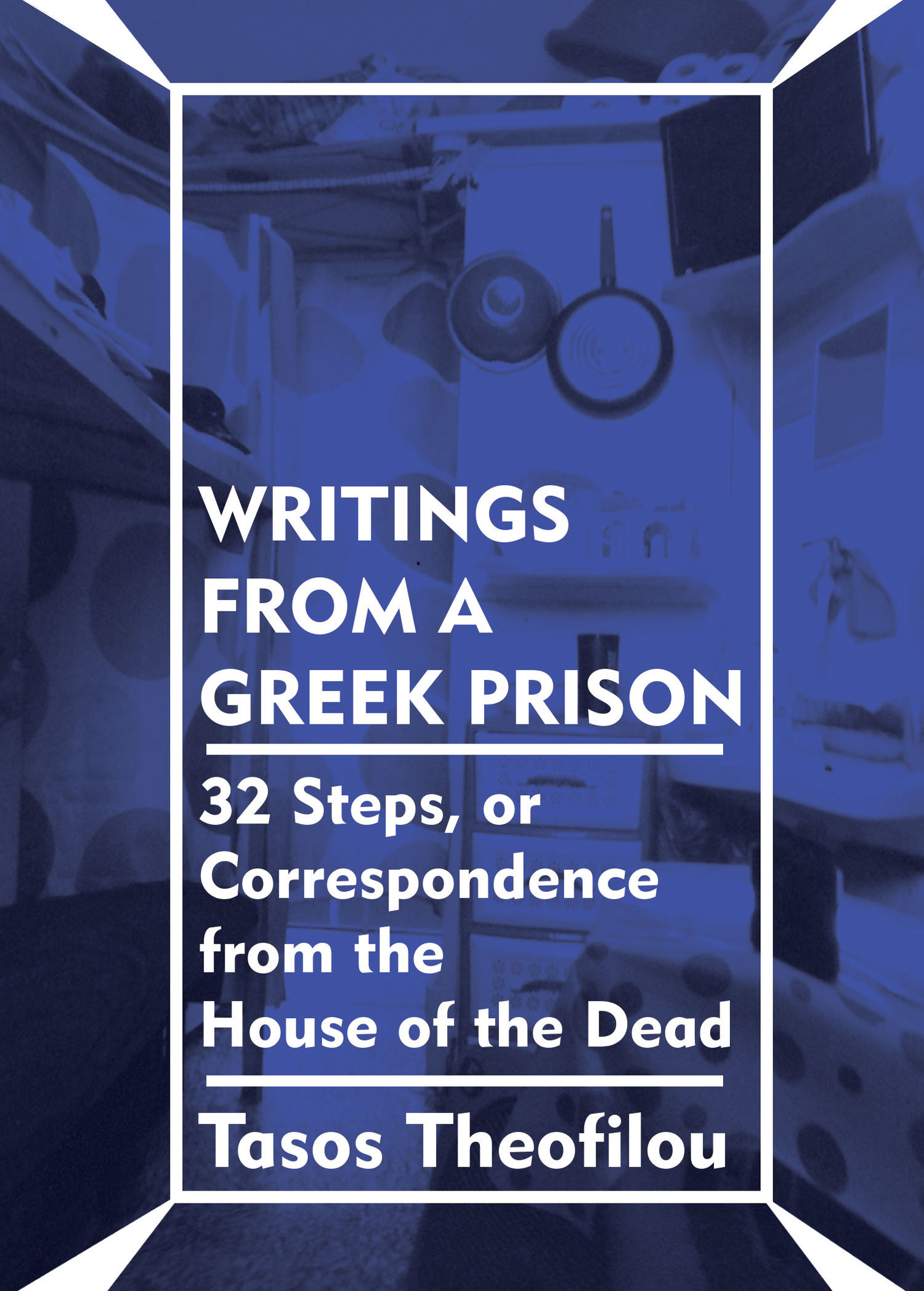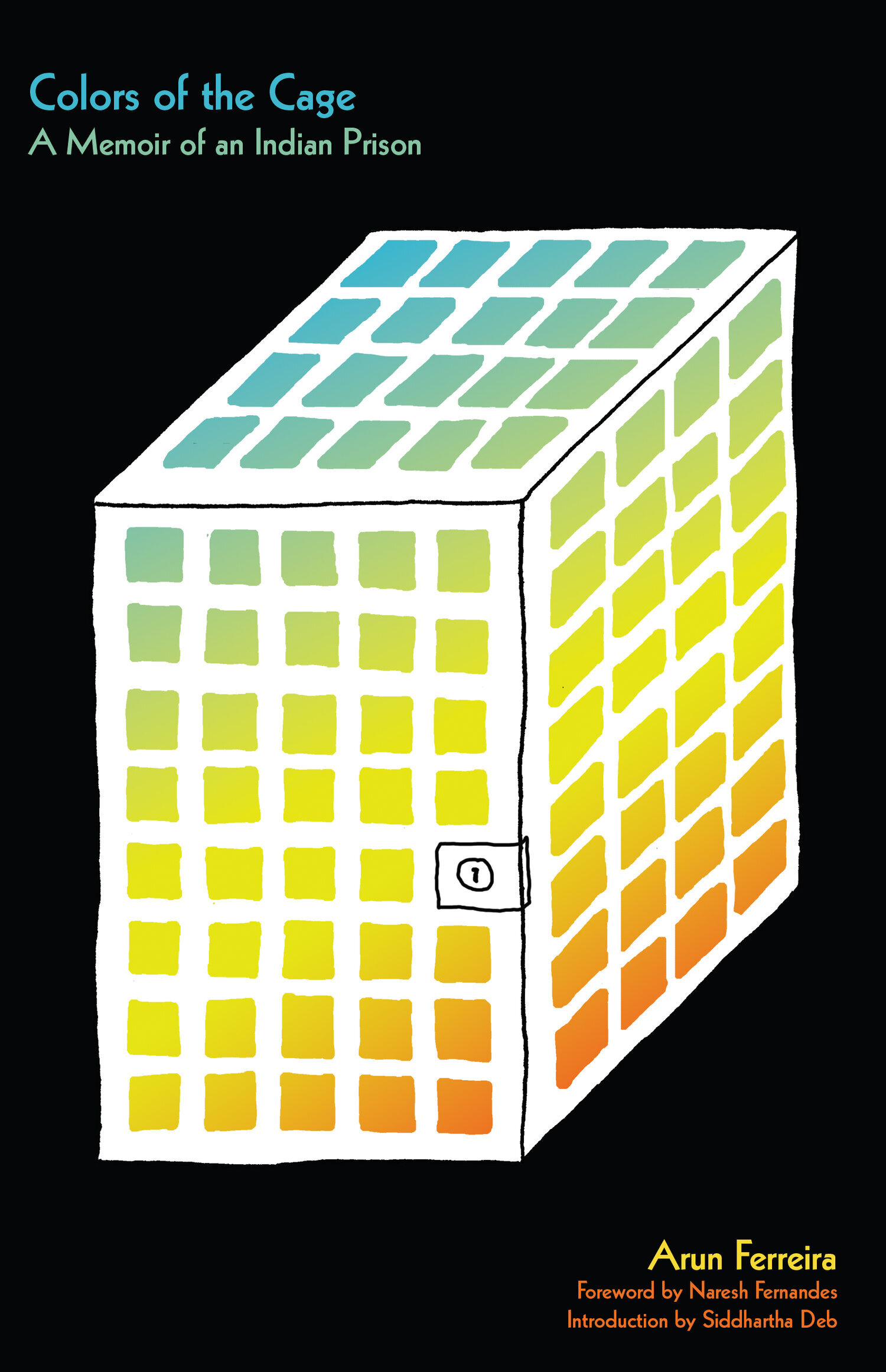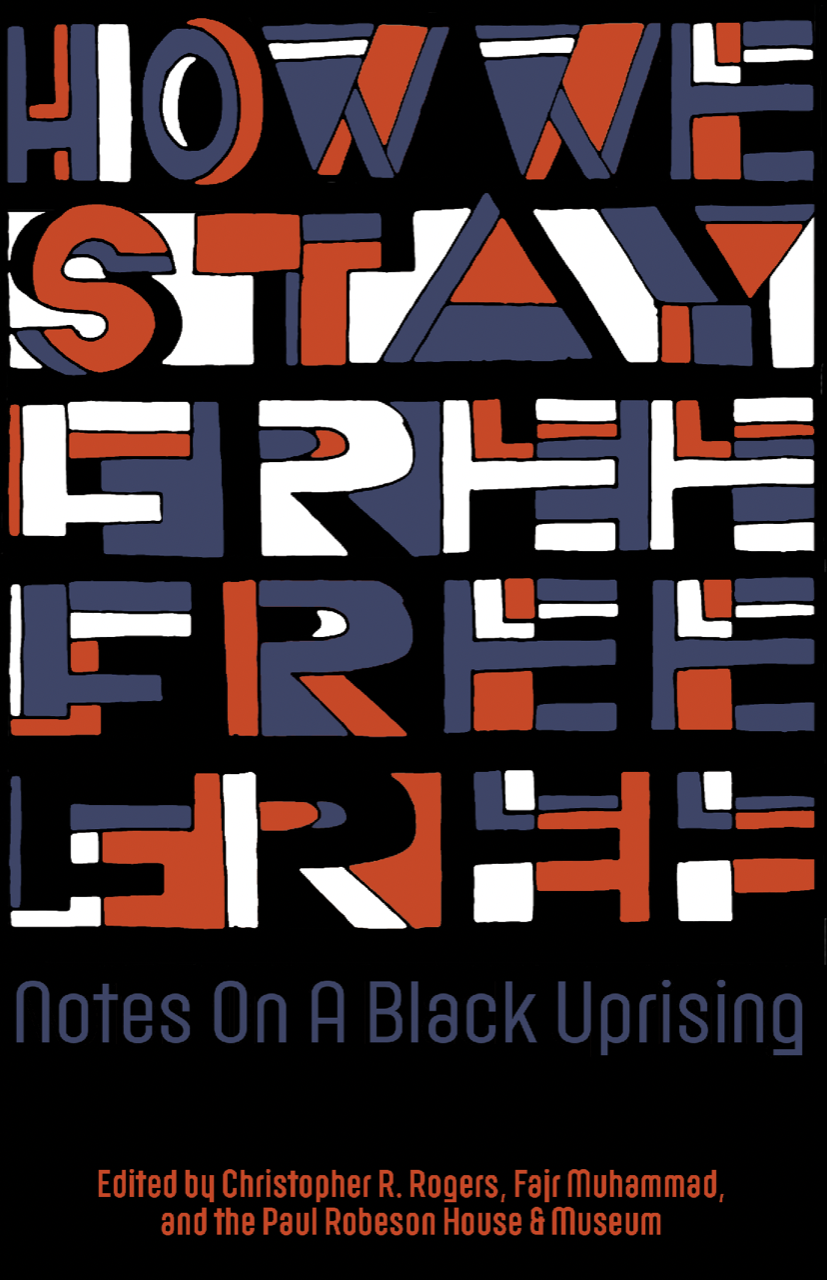Spirituality and abolition
Edited by Ashon Crawley and Roberto Sirvent, with the Abolition Collective
Abolition can be a spiritual practice, a spiritual journey, and a spiritual commitment. What does abolition entail and how can we get there as a collective and improvisational project?
To posit the spirituality of abolition is to consider the ways historical and contemporary movements against slavery; prisons; the wage system; animal and earth exploitation; racialized, gendered, and sexualized violence; and the death penalty necessitate epistemologies that have been foreclosed through violent force by Western philosophical and theological thought. It is also to claim that the material conditions that will produce abolition are necessarily Black, Indigenous, queer and trans, feminist, and also about disabled and other non-conforming bodies in force and verve.
Spirituality and Abolition asks: what can prison abolition teach us about spiritual practice, spiritual journey, spiritual commitment? And, what can these things underscore about the struggle for abolition as a desired manifestation of material change in the worlds we currently inhabit? Collecting writings, poetry, and art from thinkers, organizers, and incarcerated people, the editors trace the importance of faith and spirit in our ongoing struggle towards abolitionist horizons.
PRODUCT DETAILS
Editors: Ashon Crawley, Roberto Sirvent, Abolition Collective
Publisher: Common Notions
ISBN: 9781942173724 (print)
ISBN: 9781942173823 (eBook)
Published: February 2023
Format: Paperback
Size: 6x9Page
Count: 224
Subjects: Abolition/Spirituality/Movements
"Abolition requires that we change one thing, which is everything. When one says prison abolition, one cannot be talking about only prison. . . . It's building the future from the present in all the ways we can." —Ruth Wilson Gilmore
aBOUT THE EDITORS
Roberto Sirvent is an educator interested in race, law, and social movements who has taught at Hope International University, Pomona College, Scripps College, Claremont School of Theology, and Yale’s Summer Bioethics Institute. He is Coordinator of Outreach and Mentoring for the Political Theology Network and currently serves as Associate Editor of the Political Theology journal. With Linn Tonstad, he edits the Political Theology Undisciplined book series for Duke University Press. He is coauthor (with Danny Haiphong) of the book, American Exceptionalism and American Innocence: A People’s History of Fake News—From the Revolutionary War to the War on Terror (Skyhorse).
Ashon Crawley is Associate Professor of Religious Studies and African American and African Studies at the University of Virginia. He is author of Blackpentecostal Breath: The Aesthetics of Possibility (Fordham University Press), an investigation of aesthetics and performance as modes of collective, social imagination and The Lonely Letters, an exploration of the interrelation of Blackness, mysticism, quantum mechanics and love, published with Duke University Press in 2020. He is currently working on a third book, tentatively titled “Made Instrument,” about the role of the Hammond Organ in the institutional and historic Black Church, in Black sacred practice and in Black social life more broadly. All his work is about otherwise possibility.
Abolition: A Journal of Insurgent Politics is a collectively-run project supporting radical scholarly and activist ideas, poetry, and art, publishing and disseminating work that encourages us to make the impossible possible, to seek transformation well beyond policy changes and toward revolutionary abolitionism.
ABOUT THE CONTRIBUTORS
Hannah Bowman is a graduate student in the M.A. in Religious Studies program at Mount Saint Mary’s University, Los Angeles, and the founder and director of Christians for the Abolition of Prisons (christiansforabolition.org).
Michael Cox is an advocate for prison abolition and LGBTQ prisoners in Massachusetts. He is the administrator for the Massachusetts Bail Fund, where he and his colleagues secure the release of hundreds each month. As Executive Director of Black & Pink MA, he cultivates state and federal legislation that reduces incarceration and improves conditions of confinement.
Peter Kline is the Academic Dean and Lecturer in Systematic Theology at St Francis College, University of Divinity. He is the author of Passion for Nothing: Kierkegaard’s Apophatic Theology (Fortress Press, 2017).
Andrew Krinks is an educator, writer, scholar, and movement builder working at the intersections of racial justice, religion, mass criminalization, and abolition in Nashville, Tennessee. He teaches college and seminary courses on theology, ministry, social justice, carcerality, and abolition, and conducts participatory action research on the impacts of prisons and policing. His book White Property, Black Trespass: The Religion of Mass Criminalization will be published by New York University Press in 2024. He educates and organizes with the Nashville People’s Budget Coalition for a world of abundance and safety beyond cops, courts, and cages. www.andrewkrinks.com.
Rae Leiner is a Black identified multi-racial Queer organizer, activist, and parent residing in the Hudson Valley. Rae’s professional trajectory is primarily focused on social justice and movements for transformative change. Rae is currently the cofounder and Co-Director of the Newburgh LGBTQ+ center, former director of the Empire State Poverty Reduction Initiative in the city of Newburgh and a former Community Voices Heard organizer in Orange County. Rae brings fifteen-plus years of professional experience in the not-for-profit field and social justice work. An experienced facilitator and organizer, a strategic thinker, embodied practitioner, relationship builder, Rae’s creative thinking and radical dreaming help to inform their analysis and work towards an equitable society.
Jason Lydon is a Unitarian Universalist minister in Boston, Massachussets. Reverend Lydon focuses much of his time and ministry on penal abolition while specifically meeting the current needs of gay, lesbian, bisexual, transgender, and gender-nonconforming prioners.
Fatima Shabazz is an African American warrior transwoman activist and social Justice Advocate and founder and President of Fatima Speaks LLC, a Black Trans-owned and operated LGBTQ+ consulting concern specializing in cultural sensitive training in how to onboard members of the trans community into a safe, inclusive and productive work space.
Jasmine Syedullah is a black feminist theorist of abolitionist movement scholarship as well as coauthor of Radical Dharma: Talking Race, Love, and Liberation (North Atlantic Books, 2016). She joined the faculty of Vassar College in 2019 and holds Africana Studies’ first Assistant Professor line there. In addition to teaching, she advises the development of Prison Studies curriculum and programming. Her current book project centers the truant emancipation and timecraft of Harriet Jacobs’s 1861 abolitionist narrative as a protofeminist foundation for critical carceral race and gender studies.
Jared Ware is a cohost and producer of the podcast Millennials Are Killing Capitalism, which covers revolutionary history, social movements, and political theory. He was a member of the media relations team for the 2018 National Prison Strike. He is also a freelance journalist covering prisoner movements and abolitionist struggles.
AK Wright is a Jamaican first-generation healer-scholar who is a Black Feminist Thought postdoctoral fellow at Northeastern University in Africana Studies and Women, Gender, and Sexuality Studies. Their book project, Embodied Abolition: Healing Justice, Black Feminism and Ending Carcerality, investigates how Black individuals communally and intimately live, resist, and care amid carceral forces. Situated in Black feminist thought, queer and trans studies, and carceral studies, their research explores communal healing justice approaches to carceral abolition.
The Abolition Collective series includes three powerful anthologies: Spirituality and Abolition, Making Abolitionist Worlds, and Abolishing Carceral Society. Purchase the bundle to save on this essential collection.
Praise for SPIRITUALITY AND ABOLITION & the Abolition Collective
“Spirituality and Abolition is an invaluable collective contribution to thinking abolitionist theology and spiritual praxis, an open invitation to an abolitionist struggle being waged in the earthly and also the immaterial and spiritual realm, demystifying the ways in which colonialism and anti-Blackness shape carceral religiosity and also calling forth and evoking liberationist models of spirituality. Activists, spiritual workers, clergy, and academics in religious and Black and Indigenous and feminist, queer and trans studies as well will greatly benefit from this indispensable anthology.” —Che Gosset, Racial Justice Postdoctoral Fellow, Columbia Law School and Visiting Fellow, Animal Law and Policy Center, Harvard Law School
“This brilliant and absorbing collection of rigorous research articles, thoughtful political interventions, and innovative artworks is immensely important to the work of committed scholars, activists and organizers. There is much that teaches, fortifies, motivates and mobilizes here.”—Laleh Khalili, author of Sinews of War and Trade: Shipping and Capitalism in the Arabian Peninsula and Time in the Shadows: Confinement in Counterinsurgencies
"Making Abolitionist Worlds is an urgent reminder that theorizing and practicing abolition must take place across prison walls and the boundaries imposed by the colonial state, heteropatriarchy, settler colonialism, white supremacy, and capitalism. Finally, here is a journal providing a platform capacious enough to embrace the insurgent knowledge of activists, the analytical rigor of scholars, and the visionary power of artists." —Jackie Wang, author of Carceral Capitalism
“As the world we know is shattering more rapidly than we might have ever imagined, comes Making Abolitionist Worlds, an urgent call to build the new. These pieces movingly remind us that liberation will not transpire solely through opposition; it demands radical inquiry, imagination, creation. This collection brilliantly illustrates a core truth: we don't need ‘alternatives to incarceration,’ we need a wildly recreated society in which incarceration is unthinkable. Making Abolitionist Words will nourish and fuel struggles for transformation.”—Maya Schenwar, author of Locked Down, Locked Out: Why Prison Doesn't Work and How We Can Do Better and coauthor with Victoria Law of Prison by Any Other Name: The Harmful Consequences of Popular Reforms
"Making Abolitionist Worlds is a rich and compelling mixed-genre collection of radical perspectives that makes an urgent contribution to abolitionist world-making. Inspiring and incisive, these political interventions advance collective and transformative revolutionary praxis—what we need, now more than ever. On fire, indeed!" —J. Kēhaulani Kauanui, author of Hawaiian Blood and Paradoxes of Hawaiian Sovereignty and editor of Speaking of Indigenous Politics
Abolishing Carceral Society is an immense contribution to contemporary struggles for freedom. The pieces in this collection provoke new questions that inform resistance strategies, and deepen our understandings of the systems we are seeking to abolish and the social relations we are working to transform. This collection will be a profoundly useful tool in classrooms and activist groups. The conversation happening in Abolition is essential reading for those participating in the thorny, complex debates about how we dismantle structures of state violence and domination. The writers and artists whose work makes up the inaugural issue of Abolition, rigorously explore the most pressing questions emerging in liberation struggles.—Dean Spade, author of Normal Life: Administrative Violence, Critical Trans Politics and the Limits of Law
Abolishing Carceral Society is a wonderful mix of provocative ideas married with art, to help us consider a world without prisons, policing, and surveillance. Many of the submissions, however, are less concerned with dismantling what exists than they are with taking seriously that abolition is a project interested in building and in practical organizing. This comes through particularly in David Turner's essay, among others. Abolishing Carceral Society asks us some questions that we sometimes prefer to ignore, like ‘What does it mean to transform human relations?’ This inaugural issue from Abolition pushes us to ask a number of questions that are important to moving us toward an abolitionist horizon.—Mariame Kaba, founder of Project NIA, and cofounder of Chicago Freedom School, Chicago Taskforce on Violence Against Girls & Young Women, and Love & Protect
Abolition is a crucial contribution to radical social movements. While fighting against prisons and the death penalty as instruments of class rule, the journal amplifies the voices of the incarcerated, actively engages with organizers on the ground, and builds bridges across multiple movements. The first issue, Abolishing Carceral Society, presents incisive interventions in the current debates about prison abolition and abolitionism as a political principle. It is a bold beginning for what will become an essential forum for all insurgent thinkers.—Silvia Federici, author of Revolution at Point Zero: Housework, Reproduction, and the Feminist Struggle and Caliban and the Witch: Women, the Body, and Primitive Accumulation
From slavery to prisons, abolition has always been a project of courage and breadth. Abolishing Carceral Society brings to bear the reflective, transformative urgency needed to confront today's violent world order. Of the struggle, by the struggle, and for the struggle: this auspicious collection offers not answers but pathways down which contemporary abolitionists travel en route to a future freedom. Check out their words, scope their visions—heed their calls.—Dan Berger, author of Captive Nation: Black Prison Organizing in the Civil Rights Era
Abolishing Carceral Society continues the radical, democratic tradition started by abolitionists to speak truth to power. In these dismal political times, it is a matter of the greatest urgency to create and sustain a counter-public sphere and an alternative print culture to sustain and expand American democracy. This remarkable and inspiring advocacy journal is poised to do precisely that for democratic activists as well as the broader lay public.—Manisha Sinha, author of The Slave's Cause: A History of Abolition
The Abolition Collective embodies the kind of work anybody interested in justice should aspire to reproduce. Astute, rigorous, and uncompromising, the collective seeks to bring radical perspectives to a wide readership within and beyond academe. With the publication of its inaugural issue we are treated to the very best of revolutionary analysis. Anybody interested in upending a carceral and colonial order will find plenty of inspiration here. Something we all need and do well to pass along.—Steven Salaita, author of Inter/Nationalism: Decolonizing Native America and Palestine
The Abolition Journal project offers a unique, revolutionary lens through which to view, analyze and fight against capitalism and patriarchy on the terrain of the prison-industrial complex. It aims to combine an abolitionist message with a democratic production process that prioritizes participation of those directly affected by incarceration. What a welcome and needed approach! I am confident the project will help intellectuals build ties of solidarity across race, class, gender, nationality, and other borders that block liberation and in its finest moments will help teach us, as Mumia says, to ‘fight with light in our eyes.—James Kilgore, author of Understanding Mass Incarceration: A People's Guide to the Key Civil Rights Struggle of Our Time
Abolishing Carceral Society is a bold journal mapping new roads out of the inferno in which we live. As the editors’ Manifesto tells us, ‘abolition’ is a key strategy out of our carceral, slave-like society—the prison being the pivotal place for the perpetuation of an unjust political system. But the journal also sheds light on the many ways in which we’re imprisoned beyond the prison’s walls. With scholarly articles, poems and artwork, in a beautifully designed text, it asks us to open our eyes and support a liberation struggle against jails and jailers.—George Caffentzis, author of In Letters of Blood and Fire: Work, Machines, and the Crisis of Capitalism and No Blood For Oil: Essays on Energy, Class Struggle and War, 1998–2017
Table of Contents
Searching For An Abolitionist Spirituality—Jared Ware
The Manual For Liberating Survival: Lesson 1. How self-care matters as an embodied practice of abolition—Rae Leiner and Jasmine Syedullah
Is, Was, and is to Come: Freedom Dreamworld Dispatches—Andrew Krinks
Resurrection at the Fractured Locus: Incarcerated Black Trans Embodiment and Decolonial Abolition Praxis—AK Wright
God is Blackness: Mysticism of the Unowned Earth—Peter Kline
The Abolition of Hell: Abolitionist Interpretations of Jesus’ Descent into Hell—Hannah Bowman



